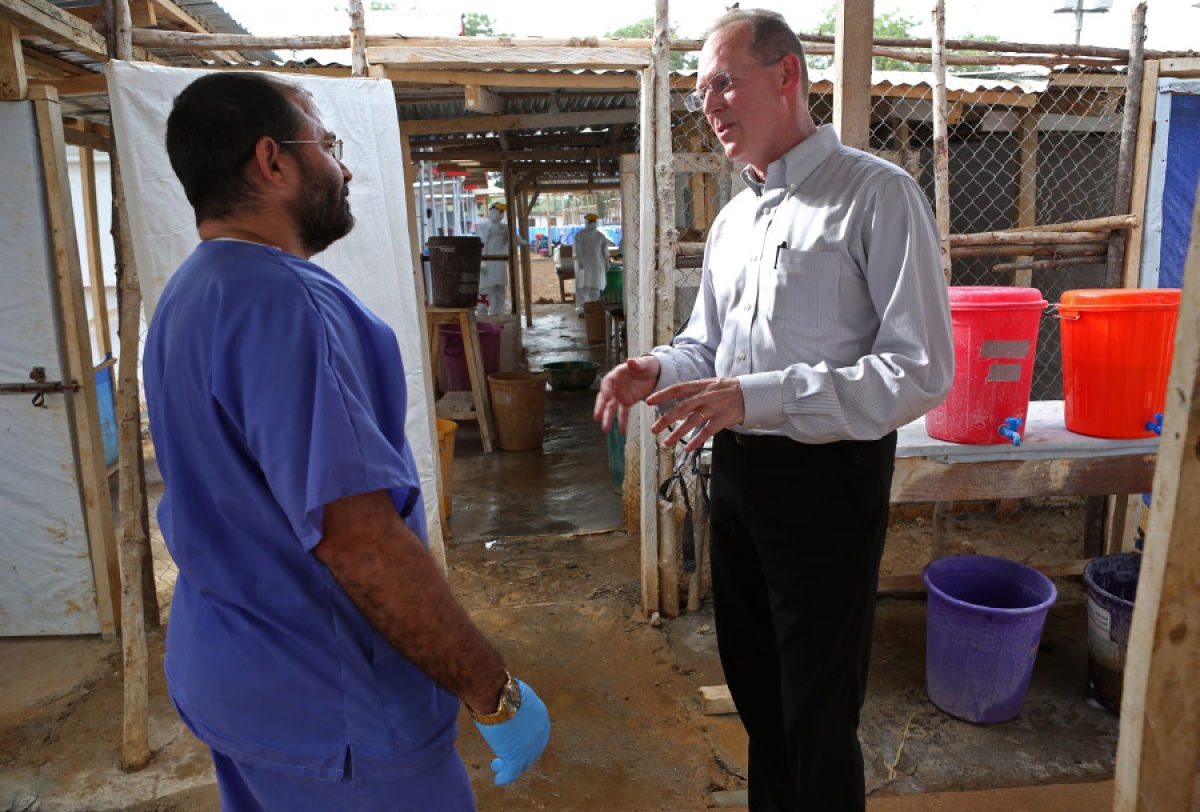How to Stop Epidemics: Spend Billions to Save Trillions
Posted on Feb 4, 2016

Global health has occupied the news this year. In January, the World Health Organization announced an end to Ebola in West Africa, only for a new case to emerge in Sierra Leone the next day. This week, the Zika virus was declared an international public health emergency as it runs rampant in Brazil and spreads to neighboring countries.
Global health experts are not surprised. Partners In Health Co-founder Dr. Paul Farmer is among them. He and 16 others—including university presidents, finance executives, and disease control specialists—forecast in a 130-page report that pandemics are inevitable as new infectious diseases emerge alongside ever-increasing international travel and trade.
The authors, who comprise the Commission on a Global Health Risk Framework for the Future, say the solution is proper investment in countries’ health systems.
This is at the core of PIH’s work. Early during the Ebola crisis, Farmer said the only “formula” to counter Ebola is a “comprehensive model of prevention,” meaning strong, functioning health systems that provide quality care.
The global community is learning this lesson again with the Zika virus. In Brazil, it is spreading where poverty is concentrated. Virus-carrying mosquitos breed in the stagnant water of dirty canals or the dumped garbage of shantytowns. Poor people without access to running water store their own, and are at greater risk of contracting Zika.
According to the commission, the public health community should view infectious diseases as important as other security threats. They recommend spending $4.5 billion per year on helping countries prepare for pandemics, growing funds for emergency responses, and accelerating research and development of drugs, vaccines, and diagnostics for infectious diseases. While a large figure, the commissioners say it’s a wise investment—pandemics could cost the global economy $60 billion a year. A fraction of that could prevent a $6 trillion problem over the next century.
PIH has been investing in the health systems of poor countries for nearly 30 years. And we’re beginning the long road to building robust health systems in West Africa, where we’ve been at the frontlines of the Ebola crisis since September 2014.
We believe this work—building clinics and hospitals, training nurses and doctors, conducting research, and partnering with local governments—will raise the standard of care available to poor communities. It is also the way to prevent debilitating epidemics such as Ebola and Zika in the future.

